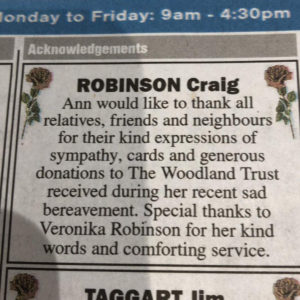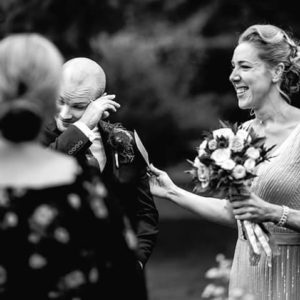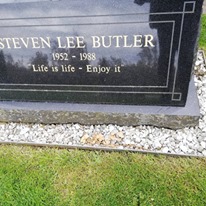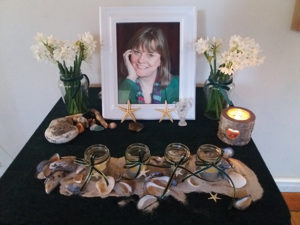Even though our Celebrant Training is based in Cumbria, we attract students from America, Canada, and across Europe and the UK.
Heart-led Ceremonies is tutored by Veronika Sophia Robinson, a celebrant with almost 25 years of experience creating, writing and officiating all manner of ceremonies. The vocal coaching is given by Paul Robinson, an experienced celebrant and voice coach. The tutoring is specific to celebrant voice work.
Heart-led Ceremonies Celebrant Training is intense, creative, practical, inspiring and thought-provoking (and for some students, completely life changing), but it also involves a huge level of commitment from the student not only during the face-to-face training but afterwards with ongoing Skype sessions between the student and the tutors.
Unlike some training organisations, our certificates are issued on aptitude not attendance. This guarantees that all of our working celebrants are of the highest professional standard in the industry.
We make no apologies for these high standards as we take the role of celebrancy seriously, and we honour the fact that grieving families are vulnerable. Regardless of the type of ceremony you wish to create and officiate, we expect a high-level of professionalism from all our graduates. This begins with the commitment they bring to their training
Private Celebrant Training with Industry Experts
The training offered is done on a one-to-one basis; though two students who know each other are welcome to train at the same time.
The two-day course runs from 10am to 5pm. On the first evening you will have FOUR hours of independent learning time which includes written assignments to be completed in full by the next day.
The five-day course runs from 10-5pm, with TWO hours of independent learning time (for each of the first four days) which includes written assignments to be completed by the next day.
We’re often asked the difference between the 2 and 5 day training.
The 2 day will give you the nuts and bolts of what you need to become a professional celebrant.
The 5 day gives you the time and space to allow everything to embed, and to go deeper into the heart of celebrancy.
This training is person-centred, and offered in a relaxed and nurturing environment. Lunch and refreshments included.
TWO-DAY TRAINING | £580
FIVE-DAY TRAINING | £1450
Please note that this fee is tax deductible once you start working as a celebrant.
Please Note: All options include at least ten hours follow up by Skype or Facetime, as well as being included on the closed Facebook group for successful graduates where they’ll receive ongoing hints, tips, guidance, as well as other support.
Post-course support is ongoing, and there are opportunities to shadow experienced celebrants.
All formats include the study and practical experience of:
♥ Understanding ceremony structure. If you know how to create one type of ceremony you can create any ceremony (hence the reason this course encompasses funerals, namings, weddings, and other rites of passage).
♥ Recognising the skills and qualities necessary for personalised and professional, heart-led, celebrancy.
♥ Funerals, Memorials, Interment of Ashes (Understanding grief, family disputes, working with funeral directors, creating meaningful farewells, cremations, burials, eco-burials). In the five-day training, you may be able to include a visit to the crematorium or a funeral director. Both private training options may also include shadowing Veronika or other Heart-led Celebrants at a funeral or family visit.
♥ Weddings, Handfastings, Elopements and Vow Renewals
♥ Naming Ceremonies (for babies, children, adults, and transgender people who wish to have their new identity formally honoured)
♥ Other rites of passage, such as menarche, blessingways, sagesse (wise crone), new business, divorce healing, and more.
♥ Understanding the legalities around death, funerals and marriage (e.g. the difference between a registrar and a celebrant)
♥ The difference between a heart-led celebrant and other types of celebrants
♥ The difference between an independent celebrant and a humanist
♥ Indoor and Outdoor Ceremonies
♥ Creating Sacred Space
♥ Setting Intention
♥ Creative Writing
♥ Script Writing
♥ Word Medicine
♥ Storytelling
♥ Performance
♥ Archetypes in Storytelling
♥ Symbols, Rituals and Altars
♥ Ceremonial Herbs
♥ Working with the Four Elements
♥ Body Awareness
♥ Celebrant Well-being
♥ Understanding the role of the Community Celebrant
♥ Voice development and coaching (this is required as an ongoing commitment by students via Skype after the initial training)
♥ Being of Service
♥ The Responsibility of being a Celebrant
♥ Developing a higher-vibrational heart frequency
♥ Enhancing Intuition
♥ Sacred Connections with Clients
♥ Mainstream and Metaphysical Marketing
♥ Being Self-Employed
♥ Establishing Your Celebrant Business
♥ The Four Sacred Archetypes of Building Your Celebrancy Brand
Applicants
Applications are invited from people who are committed to developing awareness of self and others, willing to train to an excellent level, are creative, independent, inspirational, authentic and courageous, and wish to consciously create beautiful ceremonies in their community.
Unlike any other training course in England, this focuses on the importance of ongoing personal development, and takes a mind, body and soul approach to celebrancy and ceremonies, as well as recognising the importance of ongoing skill building.
The foundation of this celebrant training is based on integrity and self-awareness.
Dear Veronika,
There are not enough words to thank you for the truly life-changing two days spent with you in your lovely home in the beautiful Cumbrian countryside. You are an inspiration, a mentor and an advocate. You helped me to value myself and the gifts I can bring to this new chosen career.
You challenged me, but in a gentle and empathetic way that made me feel that it was going to be ok to try to get my words onto the page and then “off the page”. By the time I started writing with you (and it was very early on the first day), I felt that no matter what the result was to be, I had a soft place to land, and that you would support my efforts, no matter what the end product. And, as a result, I could take risks with my emotions and my words; not easy for anyone, especially an introvert like me.
I learned more about being a celebrant from you in two days than I did in the entire nine months of my previous program. I now feel that I can, with grace, humility and hard work, develop and deliver celebrations that will honour and support events in anyone’s life journey.
Thank you, thank you, Veronika for giving me the gift of “you”. You are a true, beautiful and rare gem. I shall never forget our time together.
Thank you.
Brenda Martin, Canada


































































 www.veronikarobinson.com/celebrant
www.veronikarobinson.com/celebrant


